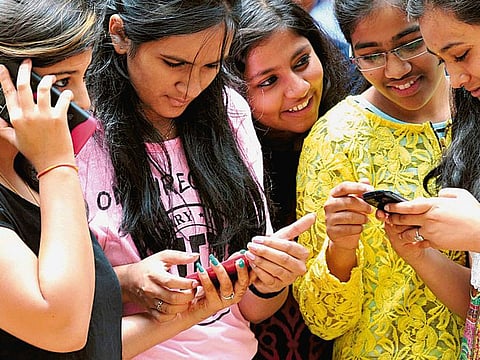Communication has become a global engine of change
This is an exciting time for communication — for governments, firms or individuals

Inventions like the steam engine have changed the course of human life and history. Similarly, the information and communication revolution became an engine of global change, and today, this sector has become a dominant influence on the future in our ever-changing world.
We live in what is known as the Information Age or New Media Age, which has been aptly described as a ‘historic period’; a period in which traditional industry — the basis of the global economy — gave way to information technology, which quickly took over as the lifeblood of market performance and stability, became an enabler of national development and determined countries’ competitiveness across sectors.
And, even though these changes were already being felt in the 20th century, the era of web and mobile communications which came with the turn of the millennium, has disrupted the way global businesses and governments function. Why? Because it essentially made information free and two-way, which means the margin for error or ethical misconduct to influence public opinion is wider than ever.
As impactful as communication is on our economies, it steers everything from politics to health, education and culture, all the way down to decisions we make in supermarkets while choosing between one brand of bread or another.
We live in an era where billions of people have access to high-speed internet...They can choose what to believe about the products and services they consume and circulate their opinion in real-time with 4.54 billion people or almost 60 per cent of the global population who are active users of the internet.Sheikh Sultan Bin Ahmed Al Qasimi, chairman of Sharjah Media Council.
The communication revolution’s unprecedented influence in spreading ideas, influencing minds and building reputation demands that governments, corporates, individuals and communities come together to commit themselves to a shared responsibility — one that will entail strict adherence to good governance practices in communication; one that will be committed to the continuous upskilling of communication professionals; one that will champion open, collaborative and participatory mechanisms of communication so citizens’ voices are heard and heeded timely and continuously.
I stress on this because public opinion is rapidly developing to become one of the most influential collective pockets of power. As governments, it is our duty to nurture this power, educate and empower it, protect it from wrongful influences, and shape it for the sustainable well-being of all.
We live in an era where billions of people have access to high-speed internet enabled mobile phones. This simply means they don’t have to rely on governments or other organisations for the truth. They can choose what to believe about the products and services they consume and circulate their opinion in real-time with 4.54 billion people or almost 60 per cent of the global population who are active users of the internet.
The wealth of ideas is quickly replacing traditional material wealth, leading to the birth of innovations that are overturning laws of demand and supply as we know them. Today, public life and market sentiments are governed by those who are approaching communication both as a science and as a creative enterprise, that is, first identifying the exact communication objectives and then using innovation and latest technologies to maximise the impact and outreach.
Communication drives sustainable development
In Sharjah and the UAE, the banner of government communication has always been held high. For the past 48 years, the nation’s leadership has leveraged communication’s role as an engine of positive change and a driver of sustainable development. Over the years, our government — citizen interactions have become more and more engaging and participatory; we have struck a fine balance between carrying our human-centric Emirati ethos of communication while boosting its channels with innovation and creativity.
The result? We are led by governments that cater to the needs and aspirations of 200 different nationalities who live and work happily in the UAE. We are proud of the fact that our government communication is a best-practice model, which is forward-looking with a rich history and a culture of empathy.
This is an exciting time for communication, whether practised by governments, private organisations or individuals. In 1,000 years, people will study this period in history books to learn about the tremendous transformations in society brought by the changes that we are living today. Together, we can set the tone for a future that will benefit both future generations of governments as well as the public.
— Sheikh Sultan Bin Ahmed Al Qasimi is the chairman of Sharjah Media Council.


